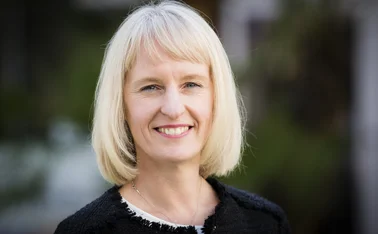
Young, gifted and broking
Young, talented brokers and senior management figures offer Emmanuel Kenning an insight into how the broking industry can attract the best staff now and in the future.
In July, Joe Thelwell won the prestigious British Insurance Awards' Young Achiever of the Year category. The accolade came shortly after his appointment - on 1 January - as managing director of Towergate Risk Solutions Poole.
Aged only 28 at the time, the combination marked not only his rapid rise but also a remarkable level of personal achievement. It also leaves him ideally placed to comment on what it takes to succeed and what more the industry should be doing to attract and retain new talent.
"I left school, went straight into a local broker and did lots of basic administration, working myself up to the role of account executive," he says. "My family has always been in insurance and it was something I wanted to get into."
Thelwell joined Towergate in 2004 and rose to sales manager in the firm's Shrewsbury office. "Insurance is a business where you get out what you put in," he explains. "I've found it very exciting and challenging. I've had some good managers who have helped me along the way and achievements have led to more opportunities."
Legacy
With his training and successes, Thelwell, the youngest managing director at Towergate, is now looking to pass on his experience to his staff. "I'm really keen to invest time in people and get them to see there is potential in their own careers," he comments. "The qualities they need are enthusiasm, good interpersonal skills, to be hardworking and have desire and drive. For success, they need good ideas and a competitive spirit with a problem-solving approach. It is up to the manager to give people opportunities, there is nothing wrong with learning by mistakes."
On how the industry should attract people with these desirable qualities, Thelwell remarks: "You have to show people a clear way to the top. It's about people seeing how far they can go and a having path to get there. The industry needs to tell the success stories about how well it has done; it needs more figureheads, heroes and role models."
Another young broker who feels that insurance brokers could do with heroes to raise its profile is Sam Keep: "I don't think anyone leaves school thinking 'I want to be an insurance broker'," he comments. Keep, an assistant claims manager at Centor Insurance and Risk Management, was shortlisted for Insurance Age's UK Broker Award as Young Broker of the Year. His route into broking was responding to an advert in a Bedford-based local newspaper.
Like Thelwell, Keep feels that a key to attracting more talent is to sell the story of insurance: "We need to raise awareness of insurance and raise its reputation. People see it as a necessary thing to do rather than having a clearer image of it." Keep embarked on a structured course at RK Harrison after completing an A-level in business studies.
After two years, he moved to London to develop his career. He says: "When I came to Centor for an interview, I had a very good feel about the company. It was young and ambitious; it was a fresh challenge with an opportunity to grow."
Despite - or perhaps because - of his decision to progress, Sam is keen to highlight the need to constantly challenge and stimulate young talent. "Companies can be wary of investing in young employees, feeling that they don't want to work. Yet young people want to be challenged and success drives people on raising standards," he notes. "Talent leaves the industry. It benefits from training people because they will be running the businesses in years ahead. You can't rely on taking people out of other industries."
Fast-track
At Centor, Keep benefited from a training programme accredited by Investors in People. Within three months of joining the company, he was put on a management course and has followed Chartered Insurance Institute training courses. It is an approach mirrored by the winner of the UK Broker Awards Young Broker of the Year category, Alan Inskip.
Inskip had the drive to follow the Chartered Insurance Institute route, completing the Certificate in Insurance; he is well on the way to achieving his diploma. As chief executive officer of Hampshire-based Temporary Cover - a broker that sells motor insurance policies (mainly online) for cars and vans for up to 28 days - he leads a team of 16 and has seen trade increase, with total sales standing over 4,000 policies a week.
A young, growing company - it was formed in April 2006 - Inskip's recruitment strategy is to never fear young talent. "Insurance is set in its ways," he remarks. "Successful people have drive and sheer bloody-mindedness to see ideas into fruition. From an employer's point of view, people get hung up on qualifications and age. Age is irrelevant - people need maturity but that is it."
Open-minded
As a passionate believer in the importance of attracting young talent to broking, Inskip looks for people who are not closed off to the world, those able to take on new skills and adapt to change. In his search for "dynamic and innovative" people, he believes the challenge is to communicate that real opportunity exists for people to progress and develop. He comments: "Broking is given a bad press. Insurance is seen as dull and people don't like spending money on it but there is an opportunity to succeed." In his view, visiting schools and universities is key.
"There needs to be a communications programme for universities," he says. "When I was at university, the thought of going into insurance never occurred to me."
Inskip suggests a trade body-led approach to attract keen, ambitious and intelligent students, the idea behind which would be for an organisation such as the British Insurance Brokers' Association to then act as a clearing-house to place them, much as with university entry from college. The organising body would create a database of brokers that would be prepared to take students.
He argues: "Through such placements, students would be able to learn about the industry and brokers would have the chance to assess the students." In return, brokers would need to commit not only to taking a student but also visiting universities and colleges to publicise the scheme.
According to Paul Schofield - head of human resources at Heath Lambert - communicating with students is a top priority to access the best young talent and so speaking at universities is worth pursuing: "Universities are more organised and easy to tap into than in the past. They have internet sites and job-posting areas and you can advertise to students themselves for relatively small sums of money." Schofield also raises the issue that trying to attract new talent can mean utilising the new technologies students are used to using. "We've had a lot of success using [online] job boards such as Monster," he adds.
Across the branch network, Heath Lambert is keen to use these routes to find candidates for permanent positions, sandwich-year placements and summer internships. Schofield says: "You are gaining up-to-date skills in technology such as Microsoft Office, HTML and a rich diversity of backgrounds with the benefit of a new way of thinking about problems. It gives the person an opportunity to see the role, the company and the environment in order to make an informed decision. It shows both sides if [the career] is worth pursuing."
Retention
David Perry, sales and marketing director at Cullum Capital Ventures - a company established in 2006 that has 45 UK brokers - notes that recruitment cannot sit in isolation: it has to go hand-in-hand with retention. He highlights: "People want to see what the next move is and how to get there. If you have some good people then you need to give them clear steps."
He explains how the £250m gross written premium-broker is undertaking the process: "We encourage businesses that become part of the group to buy into our support while retaining their local identities. We spend time with emerging managers to identify talent and give them opportunities as they arise. Talent is identified from one-to-one mentoring by regional managing directors who spend a lot of time in the business; we have groupings at different levels that we bring together for quarterly workshops. The top 10 account executives are given annual road-map training, including enhanced sales [techniques] and management."
Gary Ferguson, managing director at independent Lytham St Anne-based Wood & Craven, worked with Beneast Training - a Blackpool-based independent business education organisation; the broker took on Amy Holland in September 2006. Through the scheme, she learned office processes and undertook an NVQ on day-release to add to her GCSE qualifications. Initially, the skills she learnt were not insurance-specific but her conscientious attitude and high levels of application meant that, within six months, Ferguson took the opportunity to involve her in the insurance side of the business as well. He comments: "She immediately showed her talent and within two weeks she suggested cost savings related to our use of the post, as well as solving other problems."
He continues: "Amy had a calling to go into a job. She has shown she can adapt and have the right attitude and has done everything very well. She is a breath of fresh air and all client feedback has been very positive."
After improving the filing and office schemes, the broker - a six-person team dealing in general insurance - created a programme to train Amy through work on insurance companies' products. She is now commencing studies with the CII. Ferguson explains: "She is monitored twice weekly with live examples to go through incidents. Last week, we used students going to university and asked what cover the client has and what more they need."
In particular, it has been Holland's personable nature and ability to think of opportunities for cross-selling that have impressed Ferguson. "She has developed new ideas with colleagues and addressed areas that were becoming static," he says. "For example, she followed up lost cases and sent quotes, recapturing up to ten a month - including the mayor of Blackpool."
Despite having had reservations about taking on a new employee and interviewing 20 candidates for the role, Ferguson is certain that it was the right route to take. "I will definitely take on another trainee," he concludes.
Another company heavily involved in recruiting young talent is Higos Insurance. Alan Clarke, business development manager at wholesale arm Higos Underwriting, came into the profession with little knowledge of what it would entail. "I didn't really know a lot about the industry," he confesses. He chose a company renowned for educating trainees from scratch where, along with his dedication in sitting CII certificates, he gained a good grounding in the basic principles of the job. "I was very comfortable and worked with a mentor," he explains. "I worked with different managers with each skill set and developed an appreciation of every department."
By coincidence, the day of his interview with PB was also the day on which six new trainees were starting at the company. The new trainees undertake a one-month module to learn the technicalities of insurance cover and the market along with how to use the technology that the broker employs. It has two permanent trainers to run the in-house courses. Clarke lists the qualities needed to secure a job and succeed as "integrity, a certain level of confidence, willingness to work hard and drive". He highlights: "The company atmosphere is all about achieving and driving forward."
Clarke has risen through the ranks since joining straight from school in 2000. He was made sales team section leader at the start of 2005, section leader at Higos Underwriting in August 2006 and is responsible for managing a team of six in his current role. Developing the skills of his team is part of his passion. "My goal is to develop my team to be better than I am," he asserts. "I invest time in them taking the exams and gaining the skills they need."
School visits
The process is not limited to in-house training: the company's work in local schools is the second part of his passion.
"Our managing director [Ian Gosden] organises talks with local schools," Clarke explains. He takes a different senior manager for each visit - Clarke's first was in 2007 - who explains how their career has progressed, conducts a short quiz on insurance and explains the history of insurance featuring details on Lloyd's of London. The sessions, normally held in March or April, are not only a positive recruitment tool for the broker and uplift for the industry but also benefit the students. "We offer them an option and try to inspire them to push themselves to do well, particularly in GCSE maths and English," Clarke explains.
While recruitment for Higos is part of the role in visiting schools, there is also a wider, knock-on effect that benefits the whole broking industry from the visits. Clarke has participated in the classroom talks four times, explaining his perspective of how hard work can bring financial and personal rewards in a broking career. "We are individual in our training strategy. The industry could make it easier to progress as people do here," he comments.
The importance of your locality is a message endorsed by Jonathan Evans, now managing director at Martinez & Partners. He brings the extra angle of a foreign start to the analysis of how young talent can be recruited. "I came into insurance after studying the equivalent of A-levels in South Africa," he says. A friend of his father had a broking firm in La Reunion [a small island east of Madagascar] and, over the course of an 18-month internship, he learnt about high-volume personal lines products such as motor and household. "Trying to learn French and insurance in that language was interesting," he says. "What also took my interest was the bigger picture."
Evans admits he was fortunate to receive good on-the-job training when he secured a permanent position six weeks after a second internship at a Lloyd's broker in London. The challenge of looking at motor fleet broking and what needed changing to be more efficient led to training with teachers who were also very receptive to new ideas.
Martinez & Partners operates in three divisions - customers in industries usually deemed to be high risk for insurance; private clients; and international binding authorities.
CVs
When Evans joined in January 2001, there were three employees. Now, with a team of 15 people and £12m GWP, securing the right staff is key. "It was difficult to find the right people," he declares. "In Basingstoke, the recruitment consultants were atrocious. They didn't go into enough detail about the job and the company, they just managed CVs."
Instead, Evans uses a mix of adverts in the local newspaper and referrals to source the best young talent. He points out: "It would be nice for kids in school to think 'I want to be an insurance broker' but it doesn't get the exposure it deserves. The industry should do more to work with schools and universities; people only think about motor and home cover but there is a lot more that can be exciting. Students need to know the value a commercial insurer adds to big business."
The company is also focused on retention, as Evans points out: "It is stupid to hire the best people and not listen to them." When it comes to retaining staff, he believes that the secret is communication: "I appreciate young people want to move forwards or they'll leave; you need to know what staff want to achieve. I encourage discussion because otherwise you are more likely to lose people."
Evans also feels that a concerted effort, perhaps co-ordinated through a central resource such as Biba, could lead to all brokers in an area working with local schools to provide a recruitment tool for their own firms and the wider broking industry. He explains: "There are a lot of sides to insurance broking and there are many routes. You have to motivate young adults and financial success is key, giving tangible numbers of [earnings for] years one to five. We should not be scared to give them a reality check, though also hope."
Eric Galbraith, chief executive officer at Biba, says: "I stated at my first Biba conference five years ago that we have to attract weapons-grade talent. Since then, much has been done to promote our sector with schools, colleges and universities and Biba fully supports the CII's initiative, which I am sure will continue and develop over the coming years.
"It is also important to recognise the impact of the current crisis. This has limited the number of places available to new talent but it has not limited the importance of professionalism."
The need for young talent to not only be recruited but also challenged and given an opportunity to grow will be a key focus of Biba's 2010 conference, Professionalism in a Changing World.
Meanwhile, brokers should take the advice of the industry's talented youth and make the necessary investment in the future to secure a brighter tomorrow for insurance broking.
AN EXPERT'S VIEW
Ask anyone what makes a good company and the most popular answer will be ‘its people’. The profession has its challenges in attracting people; we roll our eyes when we hear of another person who ‘fell into insurance’.
What can we do together to bring in high-quality staff from outside the sector and keep them there? Arguably the most important action is to build relationships with education providers and offer insight into the sector.
More enlightened employers already reach out through work placements, internships, even week-long taster sessions for students. Doing this, employers can look at prospective entrants (or, if you wish, ‘try before they buy’) at little or no cost. Compared with going through agencies to find staff, the benefits can quickly stack up; small and medium-sized enterprises lead the way in this type of recruitment. The Chartered Insurance Institute runs a series of student sessions with employers around the country to reveal how diverse and interesting our sector is. By making these local connections, you are turning on the tap of talent. We are also extending and developing our talent proposition so that those in schools and colleges – not just universities – receive valuable information online and offline about our profession before making their career choices.
The CII also produces materials that explain our sector to careers advisers, most of whom know very little about it. Taking professional qualifications is part of the answer when it comes to sector employee retention. Continuing professional development is an essential part of anyone’s career journey and good employers ensure that their staff have the opportunity to attend events, go on Broker Academy courses and study for CII exams. There are local and regional opportunities to improve staff skills at all levels from apprenticeships to executive education. E-learning is a user-friendly way of acquiring knowledge and can fit around other work requirements. Investment in staff will produce a more knowledgeable workforce, which is in turn a more productive one.
I look forward to seeing you at the next school or university event.
Caspar Bartington, relationship manager, Chartered Insurance Institute
Only users who have a paid subscription or are part of a corporate subscription are able to print or copy content.
To access these options, along with all other subscription benefits, please contact info@insuranceage.co.uk or view our subscription options here: https://subscriptions.insuranceage.co.uk/subscribe
You are currently unable to print this content. Please contact info@insuranceage.co.uk to find out more.
You are currently unable to copy this content. Please contact info@insuranceage.co.uk to find out more.
Copyright Infopro Digital Limited. All rights reserved.
As outlined in our terms and conditions, https://www.infopro-digital.com/terms-and-conditions/subscriptions/ (point 2.4), printing is limited to a single copy.
If you would like to purchase additional rights please email info@insuranceage.co.uk
Copyright Infopro Digital Limited. All rights reserved.
You may share this content using our article tools. As outlined in our terms and conditions, https://www.infopro-digital.com/terms-and-conditions/subscriptions/ (clause 2.4), an Authorised User may only make one copy of the materials for their own personal use. You must also comply with the restrictions in clause 2.5.
If you would like to purchase additional rights please email info@insuranceage.co.uk








